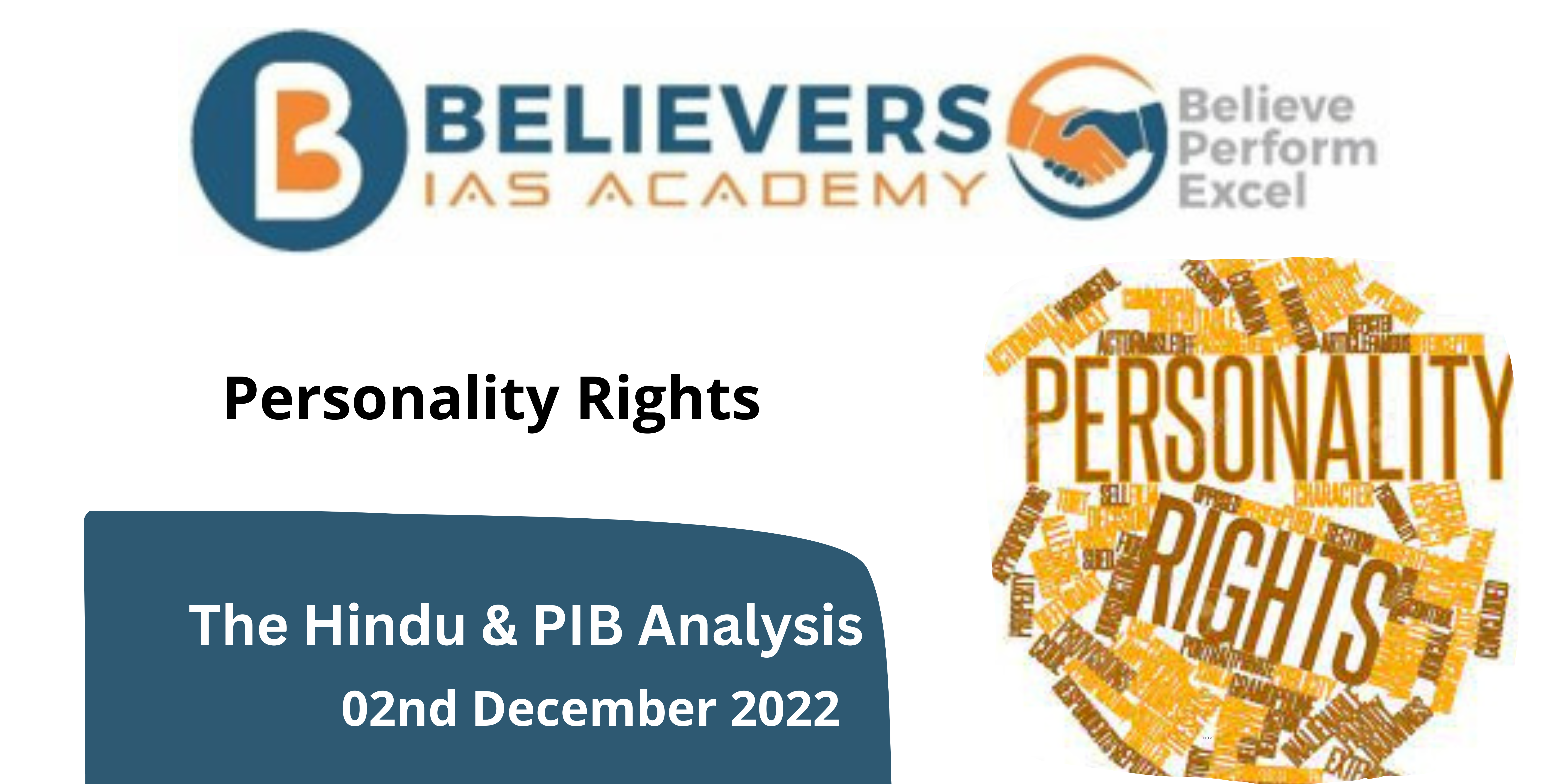Personality Rights
For Prelims
What are Personality Rights:
- Personality rights refer to the right of a person to protect his/her personality under the right to privacy or property.
- Personality rights consist of firstly, the right of publicity, or the right to keep one’s image and likeness from being commercially exploited without permission or contractual compensation and secondly, the right to privacy.
What all will be covered under Personality rights:
- A large list of unique personal attributes contributes to the making of a celebrity.
- All of these attributes need to be protected, such as name, nickname, stage name, picture, likeness, image and any identifiable personal property, such as a distinctive race car.
Personality Rights vs Publicity Rights:
- Personality rights are different from publicity rights.
- Personality rights consist of two types of rights
- Firstly, the right of publicity, or the right to keep one’s image and likeness from being commercially exploited without permission or contractual compensation.
- Secondly, the right to privacy or the right to not have one’s personality represented publicly without permission.
- However, under common law jurisdictions, publicity rights fall into the realm of the ‘tort of passing off’.
- Passing off takes place when someone intentionally or unintentionally passes off their goods or services as those belonging to another party.
- Often, this type of misrepresentation damages the goodwill of a person or business, resulting in financial or reputational damage.
- Publicity rights are governed by statutes like the Trademarks Act 1999 and the Copyright Act 1957.
Personality Rights on Internet:
- The Delhi High Court in 2011 made an observation in the case of Arun Jaitley vs Network Solutions Private Limited and Ors.
- The Court stated that the “name also falls in the category wherein it besides being a personal name has attained distinctive indicia of its own. Therefore, the said name due its peculiar nature/distinctive character coupled with the gained popularity in several fields whether being in politics, or in advocacy, …has become a well-known personal name/mark under the trade mark law which enures him the benefit to refrain others from using this name unjustifiably in addition to his personal right to sue them for the misuse of his name.”
- Whereby it declared that “the popularity or fame of individual will be no different on the internet than in reality.”

